Overview: Fediverse
This topic emerged from the 5th in a series of newsletters focused on #US2020 #disinformation. A major update in late 2022 followed my #twittermigration to Mastodon, and a smaller one a year later with the sudden deletion of my Mastodon server, followed by the arrival of Threads.
What?
Fediverse: collection of interoperable social networks built on Open Web standards. ActivityPub standard, for example, is used by (inter alia) Twitter-lookalike Mastodon and YouTube-lookalike PeerTube, and sometime in 2024 newcomers Bluesky and Threads (tbc!).
Unlike Twitter and YouTube, however:
- Mastodon/PeerTube are not owned and controlled by corporations. Anyone can launch and operate a Mastodon or PeerTube server, just like anyone can set up an email server and exchange emails with others using the email standard.
- The person who creates a server sets its rules (privacy, hate speech, etc).
- Users on any Mastodon/PeerTube server can not only interact with users on other Mastodon/PeerTube servers, they can interact across Fediverse platforms. For example:
- if Mastodon user A follows PeerTube user B, B’s PeerTube videos will appear in A’s Mastodon feed,
- user A can even comment on the video from within Mastodon, without visiting PeerTube or having a PeerTube account.
This would be like if my Twitter account followed someone's Facebook page, yet we could still interact seamlessly from our platform of preference. That’s impossible as Twitter & Facebook are walled gardens. Fediverse platforms like Mastodon and PeerTube are not – this is the Open Web on social.
See also: Tim Berners-Lee’s Solid, providing social media users with control over their data through personal knowledge graphs.
So what? New possibilities for new social platforms
While each Fediverse server is a community with its own rules, they're not walled gardens. This helps solve the vicious circle problem facing new platforms (why join a network where there are so few people on it? Hence noone joins it, so numbers stay low. So noone joins it): people don’t need to join the same social network, they just have to join any Fediverse network.
Reality check: Servers must be bidirectionally linked manually? Mastodon apparently suffers from "the singleton problem... [as it's] difficult to convince ... a major server to [federate] ... with a minor one... three Mastodon servers contain almost 60% of the known Mastodon population" - Peer-to-Peer Network Models and their Implications.
See also: adversarial interoperability - another part of the solution to this problem.
Let's do better
If progressives decamp, they should decamp to Fediverse alternatives.
The EU Institutions could help: by simply joining and posting to Fediverse platforms in addition to Facebook/Twitter, they could:
- encourage the emergence of alternatives to today’s toxic US platforms,
- add a new dimension to the EU's strategy towards them.
Return of the Splinternet?
Nevertheless, wide Fediverse adoption still requires a 'mass decamp'. There have already been a couple of false dawns.
US2020
Cue the US2020 elections, following which "US conservative leaders may have triggered the sort an en masse decamp that Facebook/Twitter alternatives require to take off".
However they're not moving to Fediverse platforms, so this may simply return us to the #splinternet (pre-platform social media), but with even more political polarisation.
2022 update: Elon Musk and the #TwitterMigration
Elon Musk's purchase of Twitter triggered a huge uptick of interest in Mastodon, leading me to finally take the plunge after 2 years of faffing about. I was optimistic (my first post was literally Welcome to the Fediverse, starry-eyed noob), but within a few months I'd discovered an unhappy truth: the current infrasructure simply doesn't deliver content properly reliably.
I'd point you to the mid-2022 toot where I pointed this out, but (as if to illustrate my point) it's gone: in November my server simply disappeared, taking all my content and connections with it, without warning. I managed to dig out a screenshot of that toot from my phone and include it in All my toots gone.
As can be seen from that post, by then I'd created a Bluesky account and was promptly followed by Satan. I haven't bothered since.
Also in 2022: just as I was writing a Fediverse strategy report for another EC department, the EU's Data Protection Supervisor and the EC's IT department launched social.network.europa.eu, the EU's own Mastodon server. The result was underwhelming to say the least, with accounts limited to the institutions, rather than the people working in them. Someone clearly never read Euan Semple's "Organisations don't tweet, people do", missing a huge opportunity that news organisations started embracing in 2022: setting up a Fediverse server for their journalists to prove that they are their journalists, not an imposter.
Soon afterwards the EU Bubble's own server - https://eupolicy.social/ - was launched. As I pointed out at the time, this had real potential:
it should be very easy for eupolicy.social to avoid creating a Brussels Bubble within the Fediverse. In the past I spent a lot of time exploring how us denizens of the Brussels Bubble could outreach to national conversations online. In the Fediverse, that’s upside down: rather than building bridges outwards, we can pull national conversations into the Bubble, simply by following the right people.
-Am I on the right Mastodon instance? (November 2022)
Back then they had 720 active accounts. 13 months later that had shrunk to 330. The EU's social.network.europa.eu has 18. It wasn't a good year.
Threads, Bluesky, and more
Literally one month after my Mastodon server disappeared, Instagram's "Twitter-killer" Threads arrived in Europe, announcing their intention - like Bluesky - to join the Fediverse, so I dug out my never-used Instagram account to kick the tyres.
As discussed during a ZNLive chat one week before, this should make 2024 at least potentially interesting:
- so far they should all use the same slogan: "We're like Twitter, but with none of your friends", so it's difficult to see people and organisations who rely on reaching an audience abandoning the incumbents anytime soon
- the hope is that their openness (if it happens) stimulates innovation in the wider Fediverse, so we get new forms of social media rather than more Twitter clones: there are already plenty of other ActivityPub-compatible networks, as well as alternative protocols like Nostr.
- all this could have huge implications for our own websites, where it might become both easier and more valuable to develop local communities of interest, networked into the wider Fediverse of decentralised social media, particularly with AI support.
---
Highlighted Resources tagged OR(#fediverse, #open web, #bluesky, #mastodon, #threads, #nostr) follow below:
Relevant resources

Given the myriad problems posed by social media platforms - content moderation, disinformation, censorship, privacy, anti-trust - this article "proposes an entirely different approach... that enables more free speech, while minimizing ... trolling, hateful speech, and large-scale disinformation efforts... also might help users ... regain cont…
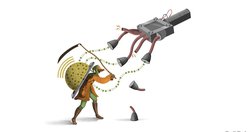
Overview of efforts to put data back into the hands of people. "platforms’ business models depend on network effects and scale to keep users engaged and to sell more advertising... a culture of virality that... poisons public discourse." Moreover, their data dominance is stifling competition & innovation. " So trustbusters are o…

ActivityPub separates content from platform. Posts from one platform propagate to other platforms, and users don’t need an account on every platform ... for ex., YouTube clone PeerTube and Mastodon both implement it, so is Mastodon user A follows PeerTube user B, B's new videos will appear in A's Mastodon feed. A can even comment on it f…

In the US, radio began as a free-market free-for-all. More than five hundred radio stations sprang up in less than a decade to explore the possibilities... 40 percent were noncommercial... network of interlinked stations playing local and national content supported by local and national advertising, became dominant players...Soviet Union... ideolo…

The web was designed to bring people together and make knowledge freely available. Everyone has a role to play to ensure the web serves humanity. By committing to the following principles, governments, companies and citizens around the world can help protect the open web as a public good and a basic right for everyone.
platforms like Facebook have ... amassed unprecedented gatekeeping powers ... Can new decentralized systems with no single point of control... be a remedy? A new report ... concludes that “protecting the future of speech online involves not only these ambitious experiments in decentralization, but the cultivation of an ecosystem of competing publi…
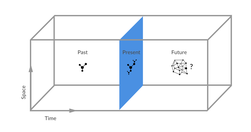
Blockchains and tokens provide two crucial puzzle pieces for .. the decentralized internet... Blockchains ... allow many different people to ... agree upon information without having to trust each other... Tokens, meanwhile, enable incentives across national and company lines... to create private economies around open platforms...

The open internet is a powerful tool in the fight against discriminatory mass surveillance... democracy’s antidote to authoritarianism... where the voices of dissidence that have always been watched, can watch and talk back.

Facebook ... can never be, a platform where people have the power to build anything... the company’s main focus ... analyzing your data and showing you ads in exchange for advertiser’s money. A future where Facebook is the global social infrastructure, is a future with no refuge from advertising and number crunching... the future of social media …
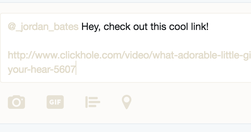
if you’re having a conversation with your friend, @person@custom.website, and another user from custom.website wants to chime in, they will be invisible.... how does one end up on this blacklist? ... mastodon.social’s community policy:... your social graph is not portable between platforms ... first principle of a workable, future-proof social ne…

The internet freedom agenda presumed the benefits of the free flow of information only cut one way: in favor of open societies, values, and ideals. But we’re now seeing that its destabilizing effects cut both ways... The open internet creates an asymmetric threat... rather than the global village ... mid-21st century internet might ... be a feder…

The war for the open internet is the defining issue of our time... By the end of this article, you’ll understand what’s happening, the market forces that are driving this, and how you can help stop it.
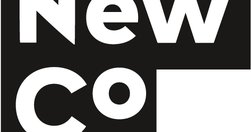
we lost what was Good about the early web, and ceded it all to the platforms.

when I saw the potential of the Internet, I thought it would be solved. The web would allow us to come together, not just across the world, but across the park, across racial lines, across our many divides... everything turned upside down. The open communication network we thought we were building turned into a hunting ground for trolls and spamme…

Decline of text in favour of videos means more Trumps and Berlusconis around the world... the internet which was the last word-centred public space after the decline of print journalism, is capitulating to the television format... public opinion in the age of television is more a set of “emotions rather than opinions, which would account for the …

All silos are not equally silo-y.... Twitter is a silo, but I can reliably point to a tweet from outside Twitter... we could come up with a Consumer Reports-like rating for all sites that indicates how much they participate in the open web at a content level.
Enter the new editors of the Internet: giant, centralized tech companies that have created platforms... notably Facebook and Apple — want to be the newsstands of tomorrow: the place we go, inside their own ecosystems, to get our news and information... journalism organizations feel they have no alternative but to be part of those ecosystems. This …

Platforms are eating publishers... The idea that Facebook and its ilk could act as information gatekeepers is also a bleak prospect... Facebook wouldn’t allow The New Republic to create an ad for an innocuous piece on medical marijuana ... If Facebook is squeamish about medical marijuana now, imagine the state of the fourth estate once controversy…
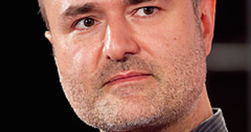
Gawker Media CEO Nick Denton was an extreme skeptic of publishers relying too heavily on Facebook. Now he's ... “all in” on publishing directly to Facebook with its Instant Articles program, a backtracking on Denton’s well-publicized lament that publishers are too reliant on platforms...Facebook, with its deep pool of accurate user data, can help …

By the time Cameron wrote “Orbital Content” in April of 2011, almost all visits to A List Apart and zeldman.com were triggered by tweets and other third-party posts... SO JUST WHY are we afraid of Medium?

Over the next few years, there is no doubt content and attention will continue to shift from tens of millions of web sites to a few centralized networks that people access via apps

Mark Zuckerberg proves not to be a fan of links... On Facebook, he doesn’t encourage you to link. On Instagram, he has simply forbidden them. He is quashing the hyperlink, thereby killing the interconnected, decentralized, outward network of text known as the World Wide Web. Facebook likes you to stay within it. Videos are now embedded in Faceb…
For the purpose of media pluralism, an emerging concern is how to ensure that the activities of these powerful platforms do not lead to a reduction in the quantity and quality of content actually available to consumers, and/or do not undermine democratic communication (e.g. through the suppression or arbitrary selection of information). Their …
the concerns and questions new information intermediaries bring to the table are explored, particularly in regards to the effect they have on media diversity. Additionally, Helberger looks into the regulatory options for safeguarding media pluralism and regulating these new gatekeepers, who are increasingly in control of consumer data. This art…
Get with the community; The death and rebirth of comments: The death of the open web?

...with iOS 9 and content blockers, what you're seeing is Apple's attempt to fully drive the knife into Google's revenue platform.... So it's Apple vs. Google vs. Facebook, all with their own revenue platforms. Google has the web, Facebook has its app, and Apple has the iPhone. This is the newest and biggest war in tech going today. And the …

"It's a discussion that's been running for a long time, but has kicked into overdrive because of Apple's release of a new operating system for iPhones and the launch of new services like Facebook Instant Articles and Apple News. And it's something you'll be hearing more and more about if you read things online..." Good observation: "if content …
Blogging has never been easier but getting read has never been harder... The problem isn't freedom or openness but distribution... you might post it on Facebook or Google Plus. Your friends might see it ... (though this is largely random) and they might share it ... You might post it on LinkedIn and your network might see it ... and LinkedIn migh…
My first subscribers, surveyed last week, were equally split between the diverse formats and styles of my first four editions, so here’s a 5th.
The biggest reason the Walled Gardens are winning is because they have a superior user experience, fueled by data... we first must build websites and applications that exceed the user experience of Facebook, Apple, Google, etc. Second, we need to take back control of our data.,, create a "personal information broker"... the user can control wha…